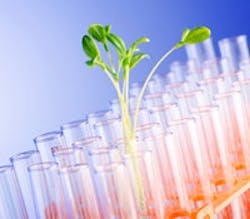Sustainability Sustains Momentum
The quest to improve the sustainability of chemical manufacturing takes many forms. Indeed, our recent cover story “Sustainability Gets the Spotlight,” highlighted some novel approaches. Now, a new survey underscores that chemical makers and their customers continue to move toward more sustainable products. Among its key findings: 72% of manufacturers already offer more sustainable versions of chemicals or plan to do so within two years; 80% of their customers show the same or higher interest in sustainable chemicals compared to a year ago; and 75% of chemicals users have started to market products made with more sustainable chemicals or expect to within two years.
[pullquote]
Commissioned by Genomatica, San Diego, a company that develops and licenses bio-based processes to produce chemicals, and conducted by ICIS, London, the survey, published in September, is the third such one since 2009. It drew 958 responses, the largest number ever — in fact, 30% more than the last survey, in 2012. Inputs came both from chemical manufacturers and their customers. More than half of the respondents (53%) held senior positions such as CEO, vice president or general manager. Europe accounted for 24% of respondents and North America 22%, compared to 40% and 27%, respectively, in the last survey. In contrast, a higher level of respondents came from South East Asia (17% versus 10% in 2012) and the Middle East (10% versus 5%).
The most common sustainability initiative is process improvement, e.g., reducing energy use or waste, which was cited by 71% of respondents. It was followed by initiatives for reducing or eliminating toxic chemicals (noted by 42%), using or boosting the level of recycled raw materials (40%) and including or increasing renewables’ content in materials (37%).
People at chemical manufacturers accounted for 39% of respondents — 13% were at specialty chemical makers, 12% at commodity chemical producers, 10% at polymer manufacturers, and 4% at fine chemical and intermediate makers — compared to 55% in 2012.
Key factors when considering renewables-based production are customer demand, which was cited by 96% of respondents from chemical makers as very important (68%) or moderately important (28%), safer operations (68%/26%), minimal impact on downstream products and customers (64%/32%) and reduced operating cash cost of production (61%/34%).
Less than half of the respondents at chemical makers (43%) foresee a long-term economic advantage in switching to renewable feedstocks; 29% don’t know whether there will be an advantage.
In contrast, the main factors that consumers of chemicals said affect their consideration of using renewable-based chemicals are minimal impact on product performance or characteristics, which was cited by 96% as very important or moderately important (74%/22%), ability to differentiate products in the marketplace (92% — 61%/31%), customer demand (91% — 60%/31%), potential performance advantage (94% — 55%/39%), minimal impact on processes and facilities (94% — 53%/41%), comparable costs to currently used materials (95% — 52%/43%) and smaller environmental footprint (90% — 46%/44%).
Interest of users in sourcing renewable versions was most pronounced for specialty chemicals (cited by 52%) and polymers (48%).
When asked which developers of technology for sustainable chemicals came to mind, more respondents (32%) picked BASF, followed by Dow (25%), DuPont (21%), Bayer (12%), Genomatica (6%), Shell (5%) and ExxonMobil (5%).
BASF also topped the list of producers of sustainable chemicals that came to mind, cited by 33% of respondents, followed by Dow (28%), DuPont (20%), Bayer (13%), Sabic (6%) and Shell (6%).
BASF also drew the highest ranking when respondents were queried about their overall impression of companies with regard to sustainability. It got very positive marks from 44% of respondents and fairly positive marks from 47%. DuPont came in second (40% and 45%, respectively), closely followed by Genomatica (37%/50%). Dow received very positive ratings from 37% and fairly positive from 43% but also tallied the highest number of negative marks (17% fairly negative and 4% very negative). Bayer got very positive ratings from 36% and fairly positive ratings from 53%.

